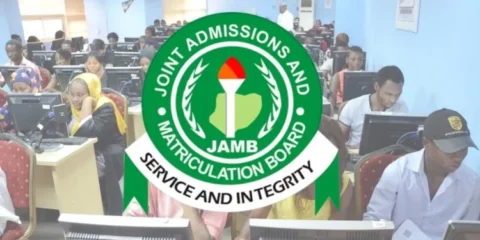Senate President Godswill Akpabio has called for greater investment in human capital development, describing it as essential for Nigeria’s progress in an increasingly competitive global environment.
Speaking through Deputy Senate President Senator Jibrin Barau at a public hearing in Abuja on Monday, Akpabio underscored the importance of expanding access to specialized education to equip the country’s growing population for the demands of the modern world.
The hearing, organized by the Senate Committee on Tertiary Institutions and TETFund and chaired by Senator Muntari Dandutse (APC–Katsina), focused on six legislative proposals seeking to establish or amend federal universities across the country.
The bills under consideration include the establishment of the Federal University of Education (Special), Oyo; Federal University of Health Sciences, Funtua, Katsina State; Federal University of Technology, Ikot Abasi, Akwa Ibom State; Federal University of Geomatics, Oyo State; Federal University of Technology and Vocational Studies, Yaba, Lagos State; and an amendment to the Federal University of Technology, Omoku, Rivers State.
Akpabio described Nigeria as standing at a critical crossroads and stressed that investments in institutions specializing in technology, health sciences, education, and vocational training would drive innovation and employment.
“Our population keeps increasing, and our investment in human capital must grow alongside it,” he said. He also highlighted the significance of proposed institutions like the University of Education (Special), Oyo, and the University of Geomatics in addressing specific economic needs and promoting inclusivity, especially for students with disabilities.
“It’s our duty as lawmakers to ensure these universities are not only created but that they’re sustainable, adequately funded, and capable of delivering modern, quality education,” he said.
Senator Dandutse, who is sponsoring the bill for the Federal University of Health Sciences in Funtua, emphasized the need to modernize medical education in Nigeria. He pointed to rapid technological advances such as artificial intelligence and robotics that are revolutionizing healthcare and could soon render traditional medical practices obsolete.
“If Nigeria fails to keep up with these changes, we risk being left behind,” he cautioned.
Senator Yunus Akintunde (APC–Oyo), sponsor of two of the proposed bills, argued for transforming existing institutions into specialized universities. He explained that upgrading the Federal College of Education (Special), Oyo, into a university would position Nigeria as a leader in special needs education in sub-Saharan Africa.
“This new university will ensure better educational opportunities for persons with disabilities and produce well-trained teachers ready to deliver inclusive, high-quality education,” Akintunde said.
He noted that demand for special education is rising nationwide and that the proposed university aligns with government efforts to promote inclusive development and increase education funding.
The public hearing represents a key step in reshaping Nigeria’s higher education sector to respond to contemporary challenges and opportunities. As lawmakers continue to deliberate on these bills, the overarching goal remains clear: building an education system that fosters innovation, inclusion, and future-ready skills.





